









| Sitticus pubescens (Fabricius, 1775) |










|
|
Scientific name: Sitticus pubescens (Fabricius, 1775) Common name: French name: Order: Araneae Family: Salticidae Size: 4 to 6 mm. Biotope: Near human buildings, on outside walls or window frames. Seldom inside houses, sometimes on fences, on trunks or under stones. Preference for sunny places. Web: No web. Spiders of the Salticidae family chase by looking at preys with their big size eyes. They move by jumping. Observation period: All year for females, from March to October for males. Geographic area: Western and central Europe. United States of America. |
Jumping spiders of the Sitticus genus are characterized by a disproportionate length of the patella and femur on legs IV. Sitticus pubescens is a small greyish brown jumping spider. The face is covered with white hairs. The upper side of the eyes is bordered with orange. The upper sides of the cephalothorax and of the abdomen show dark brown to black markings. There is a small white spot on the upper side of the cephalothorax between the lateral posterior eyes. It is often followed by a small arched black marking. The colour pattern on the upper side of the abdomen is typical and can be used to tell this species apart. You can see two dark longitudinal stripes, each one marked with two or three whitish dots whose size increases when getting closer to the abdomen tip. The legs are dark and ringed, black, white, red. Males are similar to females but a slightly darker colour. |
| [To know more about the Sitticus pubescens] [Next picture] [Top] |
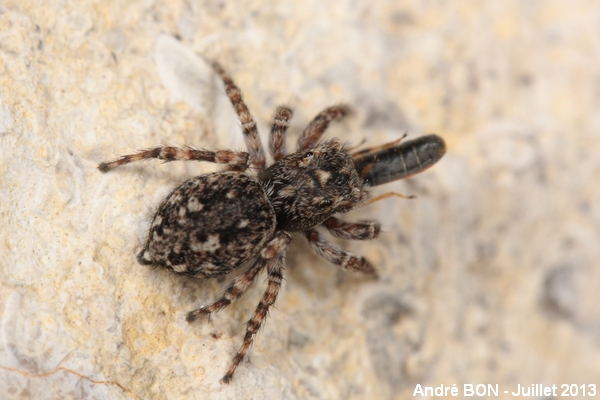
|
I have observed these small jumping spiders upon the outside and south-facing wall of an old farm. I have reach a higher magnification with the use of extension tubes . This upper side view clearly shows the typical pattern of the upper side of the cephalothorax and of the abdomen. |
| [To know more about the Sitticus pubescens] [Next picture] [Previous picture] [Top] |
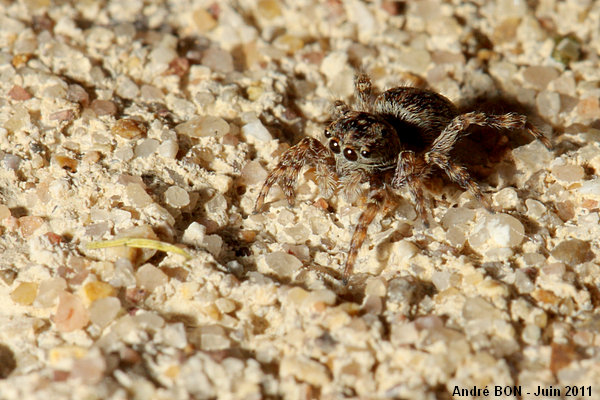
|
You can see the disproportionate length of the patella and femur on legs IV on this picture. |
| [To know more about the Sitticus pubescens] [Next picture] [Previous picture] [Top] |
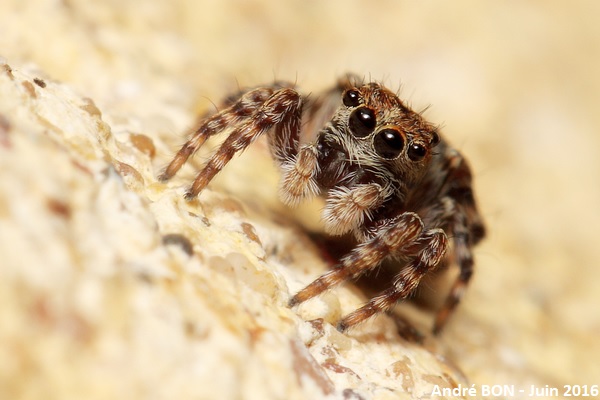
|
These little spiders move on a vertical wall. The pictures show them from another angle which does not reflect reality and this only for aesthetic purposes. |
| [To know more about the Sitticus pubescens] [Next picture] [Previous picture] [Top] |
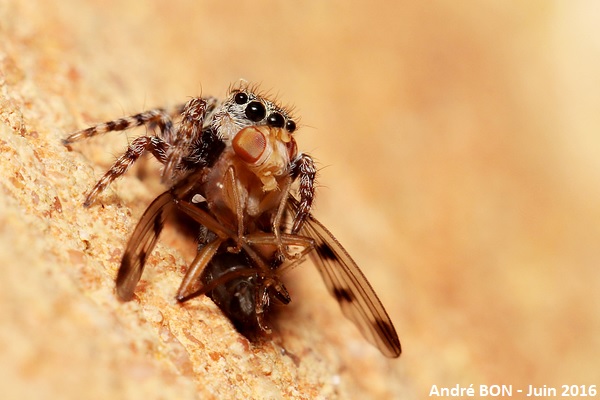
|
This picture is a merge of two shots, the first one with a precise focus on the spider's eyes, the second one with a precise focus on the prey's eyes. The merge of the two pictures was done with the CombineZP software. I am happy with the final result which could be used for a large size print. |
| [To know more about the Sitticus pubescens] [Next picture] [Previous picture] [Top] |
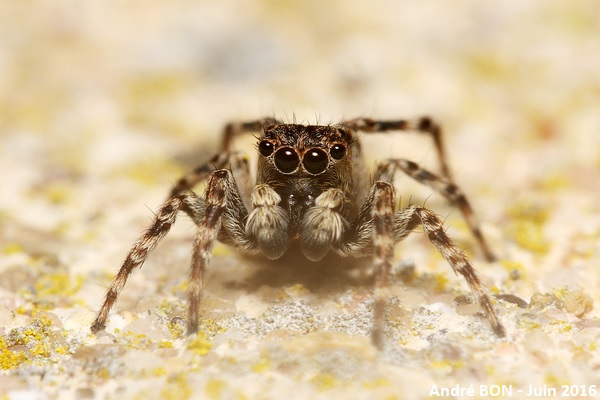
|
Here is a male. |
| [To know more about the Sitticus pubescens] [Next picture] [Previous picture] [Top] |
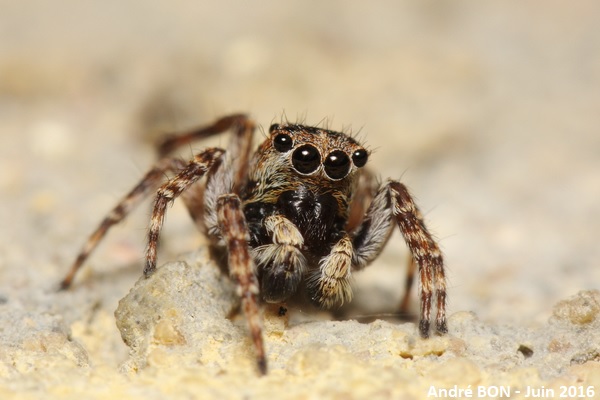
|
Another male. The tip of the pedipalps is black. |
| [To know more about the Sitticus pubescens] [Next picture] [Previous picture] [Top] |
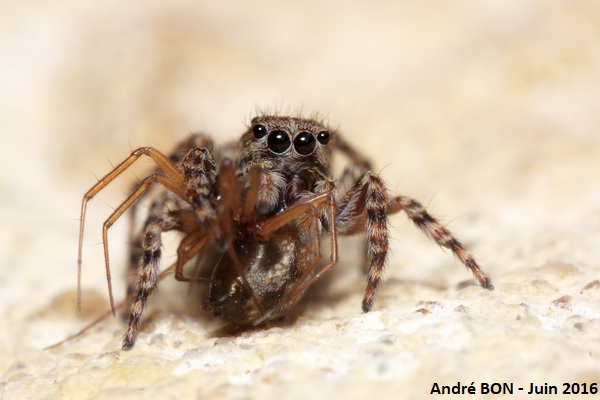
|
Observations of these small jumping spiders allowed me to see them capture fairly large preys, here another spider. |
| [To know more about the Sitticus pubescens] [Next picture] [Previous picture] [Top] |
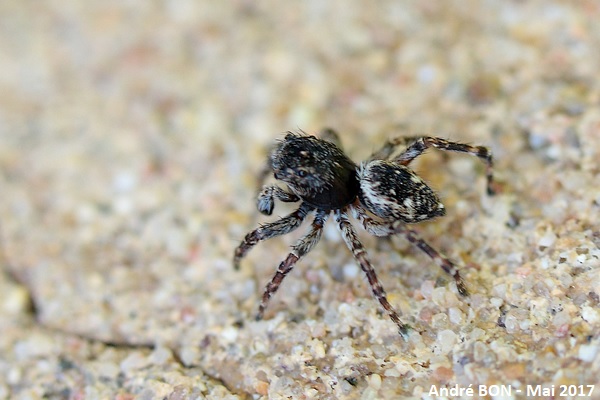
|
Here is a male. Note the much darker colours than those of females and the smaller abdomen. |
| [To know more about the Sitticus pubescens] [Next picture] [Previous picture] [Top] |
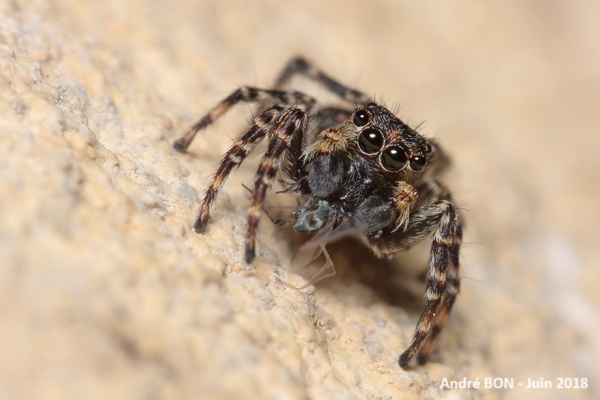
|
Here is a male with prey. |
| [To know more about the Sitticus pubescens] [Previous picture] [Top] |
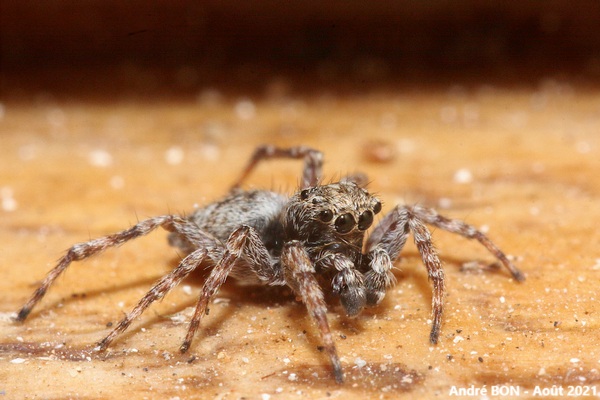
|
One male again. |